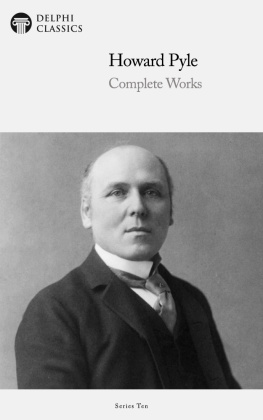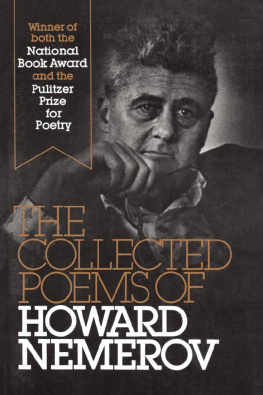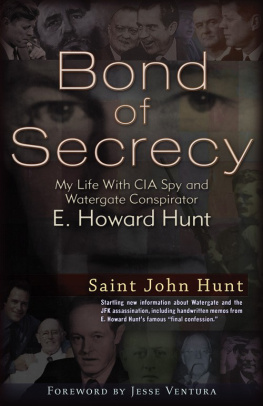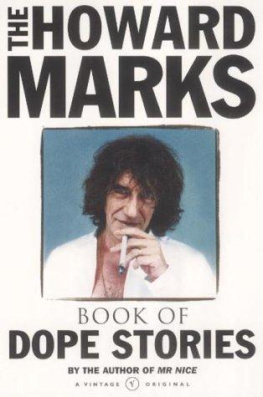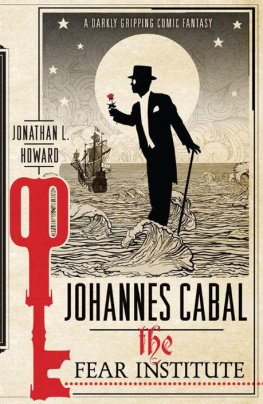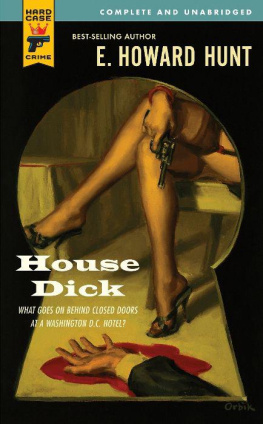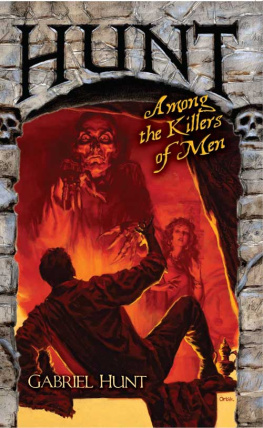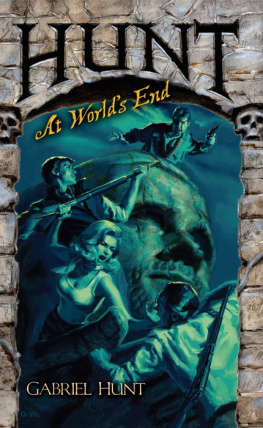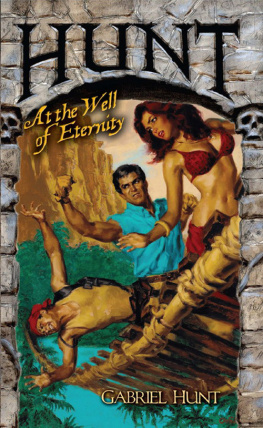Howard Hunt - The Violent Ones
Here you can read online Howard Hunt - The Violent Ones full text of the book (entire story) in english for free. Download pdf and epub, get meaning, cover and reviews about this ebook. year: 1950, publisher: Gold Medal, genre: Detective and thriller. Description of the work, (preface) as well as reviews are available. Best literature library LitArk.com created for fans of good reading and offers a wide selection of genres:
Romance novel
Science fiction
Adventure
Detective
Science
History
Home and family
Prose
Art
Politics
Computer
Non-fiction
Religion
Business
Children
Humor
Choose a favorite category and find really read worthwhile books. Enjoy immersion in the world of imagination, feel the emotions of the characters or learn something new for yourself, make an fascinating discovery.

- Book:The Violent Ones
- Author:
- Publisher:Gold Medal
- Genre:
- Year:1950
- Rating:4 / 5
- Favourites:Add to favourites
- Your mark:
- 80
- 1
- 2
- 3
- 4
- 5
The Violent Ones: summary, description and annotation
We offer to read an annotation, description, summary or preface (depends on what the author of the book "The Violent Ones" wrote himself). If you haven't found the necessary information about the book — write in the comments, we will try to find it.
The Violent Ones — read online for free the complete book (whole text) full work
Below is the text of the book, divided by pages. System saving the place of the last page read, allows you to conveniently read the book "The Violent Ones" online for free, without having to search again every time where you left off. Put a bookmark, and you can go to the page where you finished reading at any time.
Font size:
Interval:
Bookmark:
TheViolent Ones
HowardHunt
"Every lifeis many days, day after day.
We walk through ourselves,
meetingrobbers, ghosts, giants, old men, young
men, wives, widows,brothers-in-love.
But always meeting ourselves."
James Joyce
CHAPTERONE
Seat 23 on theNew York-Paris flight had been empty since Shannon. The man in seat25 was asleep, his right arm propping his body against the occasionalyawing of the Constellation. When the plane banked slightly, thelate-afternoon sun shone through the plexiglass window, touching theman's face. The light penetrated his eyelids, creating a changingworld of red that hummed and pained until he woke and leaned forward.He put his face in his hands, felt the rasp of his day-old beard.
A stewardess wasserving coffee a few seats ahead. When she came to seat 25, she said,"Coffee now, Mr. Cameron?"
He nodded andtook the warm plastic cup from her hand,
"Too muchsun? Shall I draw the curtain?"
"No. I wantto see the coast of France."
She looked ather watch. "Landfall in forty minutes."
"Thanks."
She smiled, thenmoved aft, prim and poised and very certain of her place in a worldruled by men. When Cameron finished his coffee, he walked forwardinto the washroom, turned on the electric shaver, and sanded thestubble from his chin.
Washing in thesmall aluminum basin was not a success, and after he had dried hisface he walked down the aisle to his seat. His eyes were stillsensitive from sleep when he looked through the bubble window, downat the Irish Sea.
Clouds appearedsuddenly, then vanished, leaving the plexiglass smeared withair-blown droplets that shivered past in the slip stream. The sea wascalm in the late summer afternoon. Below, to the left, was a fishingsmack, its wake a tracery of white from twelve thousand feet. Fivemiles ahead a tanker bore sluggishly toward Liverpool.
The dying sungilded the sea, blinding him until he closed his eyes and turnedaway. Leaning back against the yielding upholstery, he felt themonotonous, boring vibration of the ship's four propellers. Theirharmonic drone became a babel of voices that beat against his brain.The beat became a crescendo of pain and remembrance racking his minduntil his body was weak, and his hands gripped the seat arms asthough to restrain himself from running away.
He opened hishands slowly and looked at them. They were flushing with blood again,blood that surged back into the pallid, drained palms. Palms. Bloodon the palms. Palm Sunday. Bloody Sunday, when you smashed thetaunting face of a devil you hatedRoy Sprackling, who laughedwhen you learned about him and your wife. The sneering swine who hadhit you first and kicked you when you were down; kicked you until youdragged yourself up and flat-handed the side of his devil's neck,dropping him to the rug, where he lay bloodily hemorrhaging, and youlaughed uncontrollably until people took you away....
But even now youremembered the woman you had married. You recalled the lift of herbreasts, the rise of her forehead, the slope of her flanks, the smallcurved gathering of her leg muscles. You remembered those thingsbecause over the years they had become part of you like yourfingerprints, the color of your eyes, the rhythm of your heartbeat,unidentifiable from yourself. No separate entity, this oldwell-remembered smouldering coal of your loins. You would alwaysremember, because it was the price you were paying for givingyourself away.
And Ruth wouldremember too. She had a good memory for faces, a good memory forbodies that had claimed her before yours. She had not forgotten Roy(the smoothfaced sneer,the locker-room laugh, the inflection ofinterrupted smut, the bravado of a ruttish boar), and she would neverforget him now. She could never forget her lover lying on the floor,never forget the limpness of his hands, the twitching of his cheek,the ashen face of the condemned paralytic. His half-dead desiccatedbody was hers now. Hers alone and forever.
The stewardesstapped his shoulder. He looked up to see her pointing below. "There'sFrance," she said. "Have you seen it before?"
He nodded.
"Did youcome over on business?"
"I'm notsure."
Her eyebrowsdrew together. "You don't know?"
"A friendasked me to come."
"Oh,"she said uncertainly. "He must be a very good friend."
"We grew uptogether," Cameron said. "We were in the war together. Asfriends go, he's one of the best."
He watched herwalk forward to the next seat, a little sorry that he had upset thepat little airlines speech she had been prepared to deliver.
But he had noplans for making a flight reservation west. He was nearing the end ofa one-way ticket. Half an hour more, and it would be up to Phil totell him what the plans were. Cameron was glad that Phil Thorne hadnot been Stateside when he was convicted for assault againstSprackling. Phil would have done something if he had been around. Itwould have been quixotic and unnecessary and would have helped no oneat all. And the Foreign Service would not have approved.
The fields andforests below were beginning to purple in the June evening. It wasthe France that had raised him; the country he had known and lovedand fought in and deserted. Now, in the end, he had come back to her,repentant for intervening infidelities. And for him, always, it wouldbe a France of dusty, troop-trodden roads, and liberated vin rosand a girl named Marcelle.
The warningpanel flashed red, and Cameron reached automatically for his seatbelt. He tightened it across his thighs and lifted a battered briefcase to his lap. Looking at its scarred sides, he smiled wryly. Itwas not what Phil would carry on an Atlantic crossing. It was notMark Cross or Brooks. It did not say Corps Diplomatique eachtime you looked at it. Instead, it was old and comfortable andsomehow sound, and the students who had watched him carry it to classso many times felt that he was probably a pretty good assistantprofessor of French.
The plane waswest of Paris now, heading south for Orly. Below was Louveciennes,then La Celle St. Cloud; and glittering in the last light of day,Versailles's crosslike Grand Canal. From the air, Paris was an obesebody supported by twenty-one spindly legsroutes from theprovinces. It was a wax intaglio with careless spidery tendrils, apiece of spined costume jewelry, a diadem, a veined ulcer.
Now, to a risingwhine, the flaps began to trail down and out from the long thinwings, slowing the plane like a liner backing its screws. The quickdeceleration made Cameron lean forward, and as the plane bankedheavily, he could see the runways of Orly, jeweled with lights in thenew purple night.
TheConstellation dropped like a bloated eagle toward the end of therunway. It settled in a rush of wind and slowing propellors. Camerontensed himself for the initial wheel contacts, and when they came,concrete tearing the rubber-nylon, searing, smoking, skidding, hetook them easily, relaxing when the nose wheel touched and the planewas rolling smoothly parallel to the concrete.
It was eighto'clock when his passport had been stamped by the Sret,and he walked to the low customs barrier to claim his baggage. Themustached douanier said in English, "You have somethingto declare?"
In French,Cameron said, "Only the cigarettes."
"Nothingmore?" the douanier asked in his native language, as he chalkeda cross on Cameron's worn Gladstone.
"Nothing."
"Do youstay long in France, m'sieu?"
"One cannotknow."
"You areglad to return to France?"
"Glad andnot glad," Cameron said, lifting his bag from the barrier. "Iam happy to see Paris again, but I regret the condition in which Iwill see her."
"Ah,"the douanier said gravely. "I understand well. I, too, canmanage a little philosophy. For eight hundred francs a day I standbehind this little cage sand perform like an animal. I ask questionsand I chalk the crosses." He chalked Cameron's brief case. "Ifyou leave France again and return, be sure your valise is seen by me.I cannot ask questions of an American who speaks my tongue as you do;I will only chalk the crosses."
Next pageFont size:
Interval:
Bookmark:
Similar books «The Violent Ones»
Look at similar books to The Violent Ones. We have selected literature similar in name and meaning in the hope of providing readers with more options to find new, interesting, not yet read works.
Discussion, reviews of the book The Violent Ones and just readers' own opinions. Leave your comments, write what you think about the work, its meaning or the main characters. Specify what exactly you liked and what you didn't like, and why you think so.

